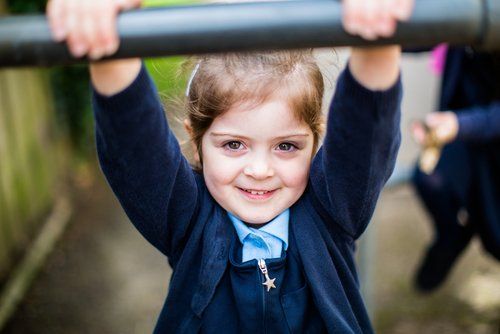How to help your young child transition back to school
Heather Rutherford • August 24, 2020
Gentle preparation is key to helping them feel safe, secure and successful

Change can be a challenge but it can be a learning opportunity. This is a time to nurture resilience in our kids.
Children can find any transition hard and it can be especially tough for young children and those who don't react well to change. How your child manages will depend upon their unique temperament, their age and their particular stage of development.
All young kids are wired to be impulsive and live in the moment thanks to their still-developing brains. They can find it tough to anticipate and process what comes next and this can be very unsettling.
We can help our kids set up for successful transitions. This is a great example of proactive parenting. I used to be reactive. One of my children didn't do so well with change. She likes to feel prepared and in control. I used to avoid discussing what was going to happen for fear that she would get upset and I wanted to save her the worry so instead, I often hijacked her at the last minute in the hope that she might not notice what was happening. 'It's swimming in 10 minutes. It's Thursday. Let's go!'. This inevitably and understandably backfired and I had an upset anxious child and I felt guilty. I was adding to her worry and fear of change rather than teaching her strategies to manage transitions and help her build resilience.
The best way to help your children feel successful with change is to acknowledge their worries and talk things through in advance to give them the chance to get used to the idea and process what might happen. Most importantly they can air their worries and fears. We can then listen and empathise, rather than pushing their worries to one side, and this validation of feelings ( knowing that it is ok to feel that way) helps them to learn to recognise and manage their emotions and fears. We call this a 'chat through' and it as a great way to help your kids do their best.
If you are getting your child prepared for school, don't leave your chat-through to the night before. Instead talk little and often and positively about what the 'new' social distancing school day might look and feel like, how they might feel about it, and how they might manage these feelings.
If you think that saying 'goodbye' may be tough, practice in advance. You might come up with a little phrase or ritual that you can try before the big day. Then on the morning, even if there are big feelings, the act of saying 'goodbye' will feel familiar and come with your reassurance that you will be there to pick them up later on.
Revisit the chat through many times over the days before school when you are quiet and calm and let your child do most of the talking. For a younger child, it might sound like this:
"What's happening in four days- It will be Monday? yes, that’s right you are going back to school. Can you remember some of the things that might be different this time when you go back?"
"What were the things that you needed to take? Do you remember we talked about the hand-washing stations and lines on the floor and bubbles within your class. What else do you think might be different? "
"I am wondering how you are feeling? How do you think it will be when you have to stay apart from your some of friends at playtime? Yeah, it will feel strange and you might feel sad. "
"What do you think you could do if you are feeling a bit sad? Yes you could talk to Miss Graham that's a really sensible idea and I know she would like to know how you are feeling."
"What can we do to make it easier for you and fun?"
"Now let's think of all the things you are looking forward to."
On the morning of school, keep things positive, calm and light and acknowledge your kids for all the things they get right - they remembered their school bag, their lunch, they smiled etc. Empathise that it might feel strange or weird or different rather than 'it will all be fine".
When our kids have the chance to process and prepare for change, they are much more likely to feel successful. Helping our kids with transitions and setting them up for success is just one more way we can build resilience so that they learn to cope with change and unexpected twists and turns in life.
